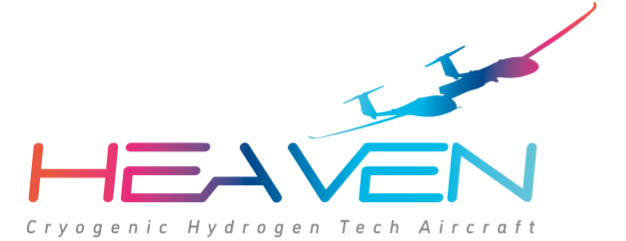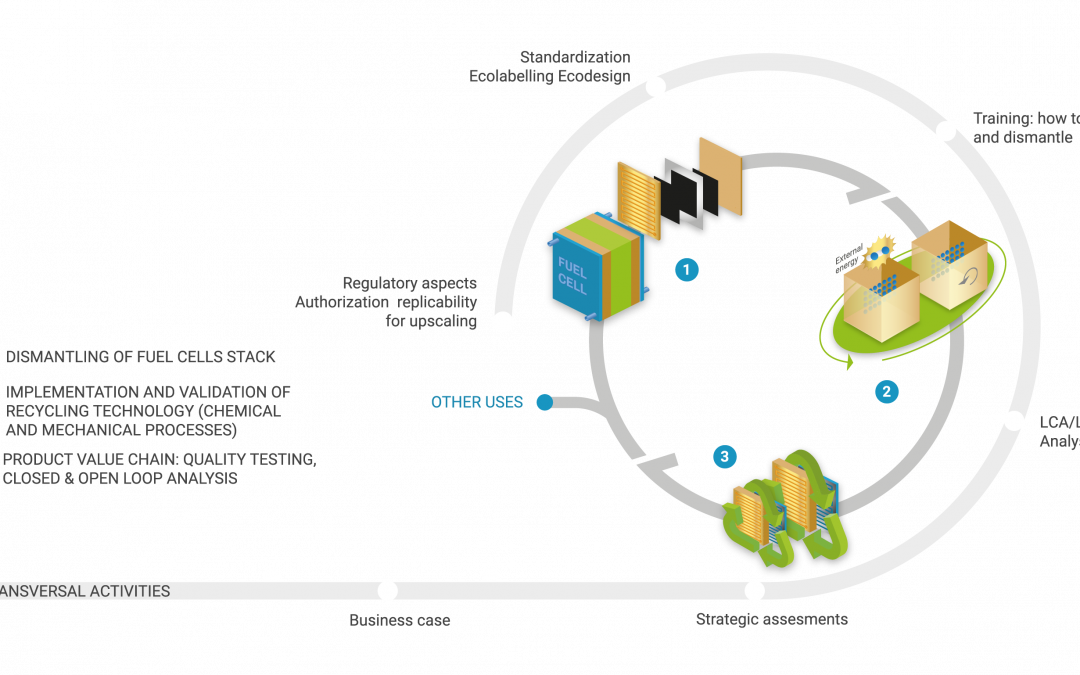This is the first in a series of posts that will explain who the allies of Heaven’s members are and what they do.
BEST4Hy, for example, collaborates with EKPO focusing on the development and validation of existing and novel recycling processes for two key FCH (fuel cells and hydrogen) products: PEMFC (proton-exchange membrane fuel) and SOFC (solid oxide fuel cell).
The project is also focused on transversal activities such as life cycle assessment (LCA) and cost (LCC) studies, regulatory analysis, standardization aspects, strategic analysis towards replication, technical training, how recycling and dismantling FCH technologies, dissemination and stakeholders involvement.
“Hydrogen plays a key role in the energy transition and to reach the 2050 goals. All sectors must contribute massively, including the aviation sector. Just think that the industry in the EU in 2017 contributed 3.8% of total CO2 emissions and it is the second biggest source of transport GHG emissions after road transport. Hydrogen and fuel cells technology can help this reduction significantly”, says the area manager at Environment Park (Torino, Italia), Sabina Fiorot.
Regarding the short-mid term goals of Best4Hy, Fiorot claims: “Hydrogen is becoming more and more a realistic solution contributing to the decarbonization of our economy. As demand for hydrogen technology increases, ever more devices become in use and will eventually end up in the waste stream, requiring therefore handling in a sustainable manner. The issue is not only ensuring a correct disposal path within a clear regulatory context, but also ensuring the full recovery of the critical materials used. This is crucial not only for safeguarding that the new hydrogen technologies and devices have a lower environmental impact than their counterparts over the whole life cycle but also for recirculating extremely precious and rare materials supporting the whole hydrogen economy delivery”.
BEST4Hy is taking up the challenge of studying and spreading the technologies of recycling and recycled materials in terms of direct involvement of the main actors of such a future scenario, i.e. the recycling centres and the manufacturers of FCH technologies. The drivers for working towards a higher supply of recycled material suitable for application in FCH have not changed – if anything, they have been reinforced through the new Commission’s Green Deal and the March 2020 New Circular Economy Action Plan. “The early 2020 pandemic showed also, amongst other effects, the delicate equilibrium of the global economy including the fragility of the EU dependency for key materials and products from the rest of the globe. Considering therefore barriers and opportunities residing in mining resources already circulating within the EU economy, BEST4Hy has the ambition of progressing a step closer to scale up and industrialisation recycling technologies that have not yet left the laboratories of recycling centres or research centres and also providing some novel technologies where they had not been identified yet (e.g. SOFCs)”.
BEST4Hy has the objective to ensure these recycling technologies are environmentally and economically sound, progressing also the knowledge on the life cycle impacts of the FCH technologies from cradle to grave. One of the main goals is the involvement of FCH manufacturers and recyclers in order to put to the test in full loop the working of a closed loop recycling scenario, but also recyclers and researchers to find avenues for open loop recycling and overall higher recycling performance.

